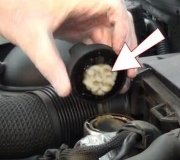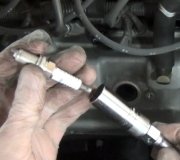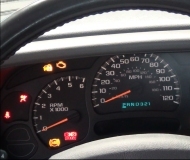1. I hear because the timing is off that's why there's 0 compression, true or false?
2. I hear I am not at risk of bending valves since car won't start, true or false?
3. Is all this cause timing is off? I changed water pump n prior to this repair car started. My mechanic was paid n here I am trying to figure it out cause he never came back. All I can think of is timing must be wrong but why 0 compression on all cylinders. It won't ever start!
SPONSORED LINKS
Wednesday, October 12th, 2011 AT 9:35 PM



